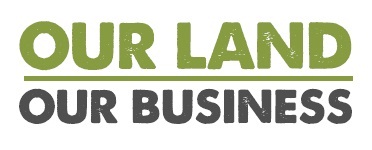Oakland, December 1, 2014
World Bank, Enabling the Business of Agriculture (EBA) Project Team
Cc.
Federica Saliola, Program Manager, World Bank Global Indicators Group, Development Economics
Farbod Youssefi, Program Coordinator, World Bank Enabling the Business of Agriculture Project
Grahame Dixie, Advisor, World Bank Agriculture & Environmental Services
Subject: Concern over the “Consultation” Process of the Enabling the Business of Agriculture (EBA) Project
Dear EBA Project Team,
As a member of the Our Land Our Business campaign, we are writing to express our concern about the Civil Society consultation planned for the Enabling the Business of Agriculture (EBA), formerly known as the Benchmarking the Business of Agriculture (BBA) initiative, on December 4, 2014.
After conducting pilot studies in ten countries, the EBA is planning to scale up to cover thirty more countries by 2015 in its second phase. Prior to the launch of the second phase, the EBA team is organizing a meeting billed as consultation with the civil society.
The team has chosen to ignore a multi-continental campaign, Our Land Our Business, where more than 260 civil society organizations, farmers’ groups and unions have called to stop the EBA initiative. Instead, the EBA team is embarking on consultations held in the United-Kingdom.
Given the Bank’s mandate to fight poverty, any meaningful consultation would prioritize involvement of the farmers’ organizations and CSOs from the developing world; would seek to learn their needs and expectations in terms of policy indicators for agriculture and the relevance of an initiative such as the EBA, which instead is flawed in favor of agribusiness interests.
The London meeting, organized with only seven business days of prior notification, is presented as an opportunity for CSOs to provide feedback and input as the initiative moves ahead. The venue and logistical details make it impossible for the most impacted stakeholders to be a part of this consultation.
As a member of the Our Land Our Business campaign, we believe that this flawed civil society consultation process further reinforces the illegitimacy of the initiative and we reiterate our demand to end the EBA.
Sincerely,
Anuradha Mittal, Executive Director, Oakland Institute

On 1st December 2014 the Our Land, Our Business campaign sent the following open letter to The World Bank
Oakland, December 1, 2014
World Bank, Enabling the Business of Agriculture (EBA) Project Team
Cc.
Federica Saliola, Program Manager, World Bank Global Indicators Group, Development Economics
Farbod Youssefi, Program Coordinator, World Bank Enabling the Business of Agriculture Project
Grahame Dixie, Advisor, World Bank Agriculture & Environmental Services
Subject: Concern over the “Consultation” Process of the Enabling the Business of Agriculture (EBA) Project
Dear EBA Project Team,
As a member of the Our Land Our Business campaign, we are writing to express our concern about the Civil Society consultation planned for the Enabling the Business of Agriculture (EBA), formerly known as the Benchmarking the Business of Agriculture (BBA) initiative, on December 4, 2014.
After conducting pilot studies in ten countries, the EBA is planning to scale up to cover thirty more countries by 2015 in its second phase. Prior to the launch of the second phase, the EBA team is organizing a meeting billed as consultation with the civil society.
The team has chosen to ignore a multi-continental campaign, Our Land Our Business, where more than 260 civil society organizations, farmers’ groups and unions have called to stop the EBA initiative. Instead, the EBA team is embarking on consultations held in the United-Kingdom.
Given the Bank’s mandate to fight poverty, any meaningful consultation would prioritize involvement of the farmers’ organizations and CSOs from the developing world; would seek to learn their needs and expectations in terms of policy indicators for agriculture and the relevance of an initiative such as the EBA, which instead is flawed in favor of agribusiness interests.
The London meeting, organized with only seven business days of prior notification, is presented as an opportunity for CSOs to provide feedback and input as the initiative moves ahead. The venue and logistical details make it impossible for the most impacted stakeholders to be a part of this consultation.
As a member of the Our Land Our Business campaign, we believe that this flawed civil society consultation process further reinforces the illegitimacy of the initiative and we reiterate our demand to end the EBA.
Sincerely,
Anuradha Mittal, Executive Director, Oakland Institute